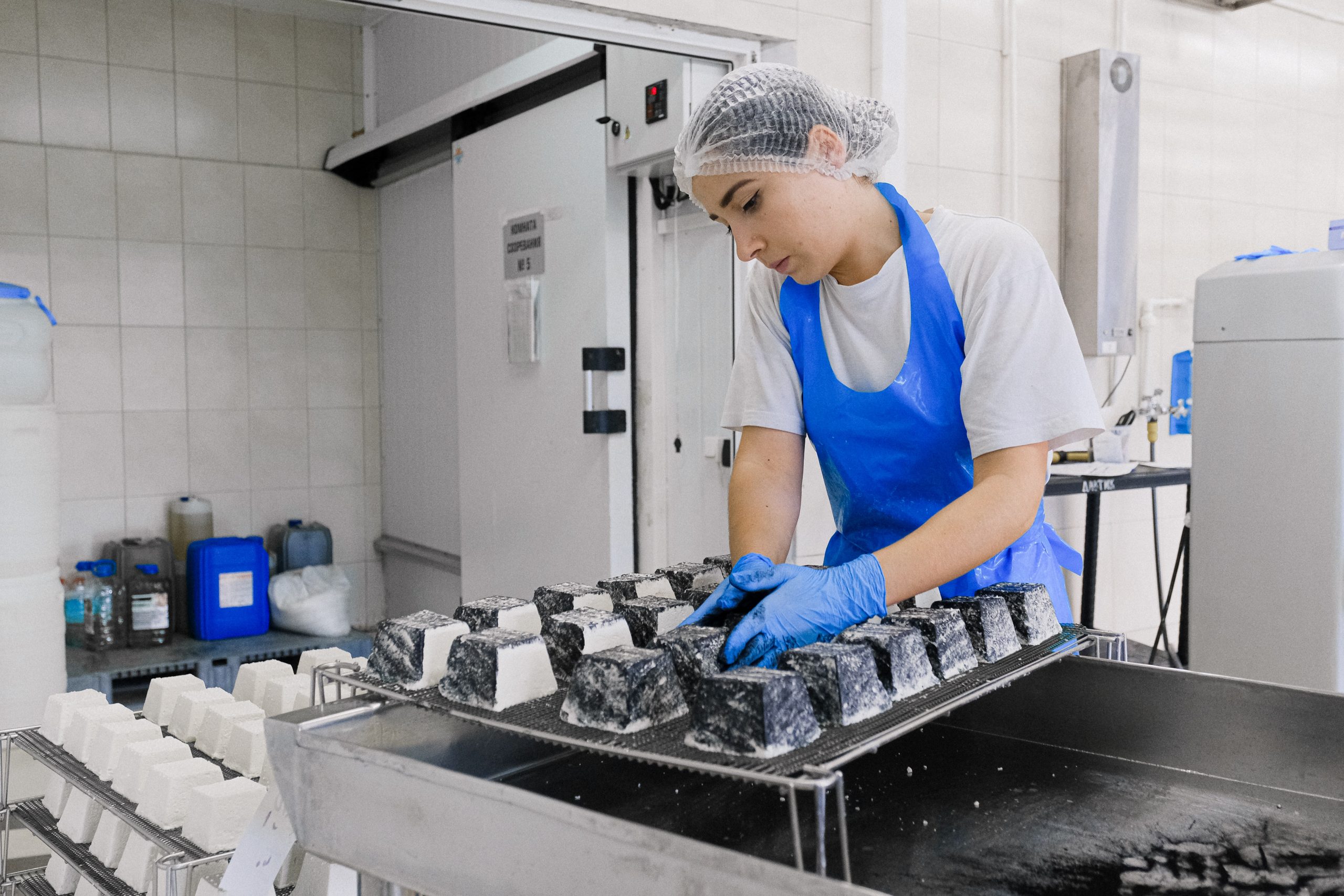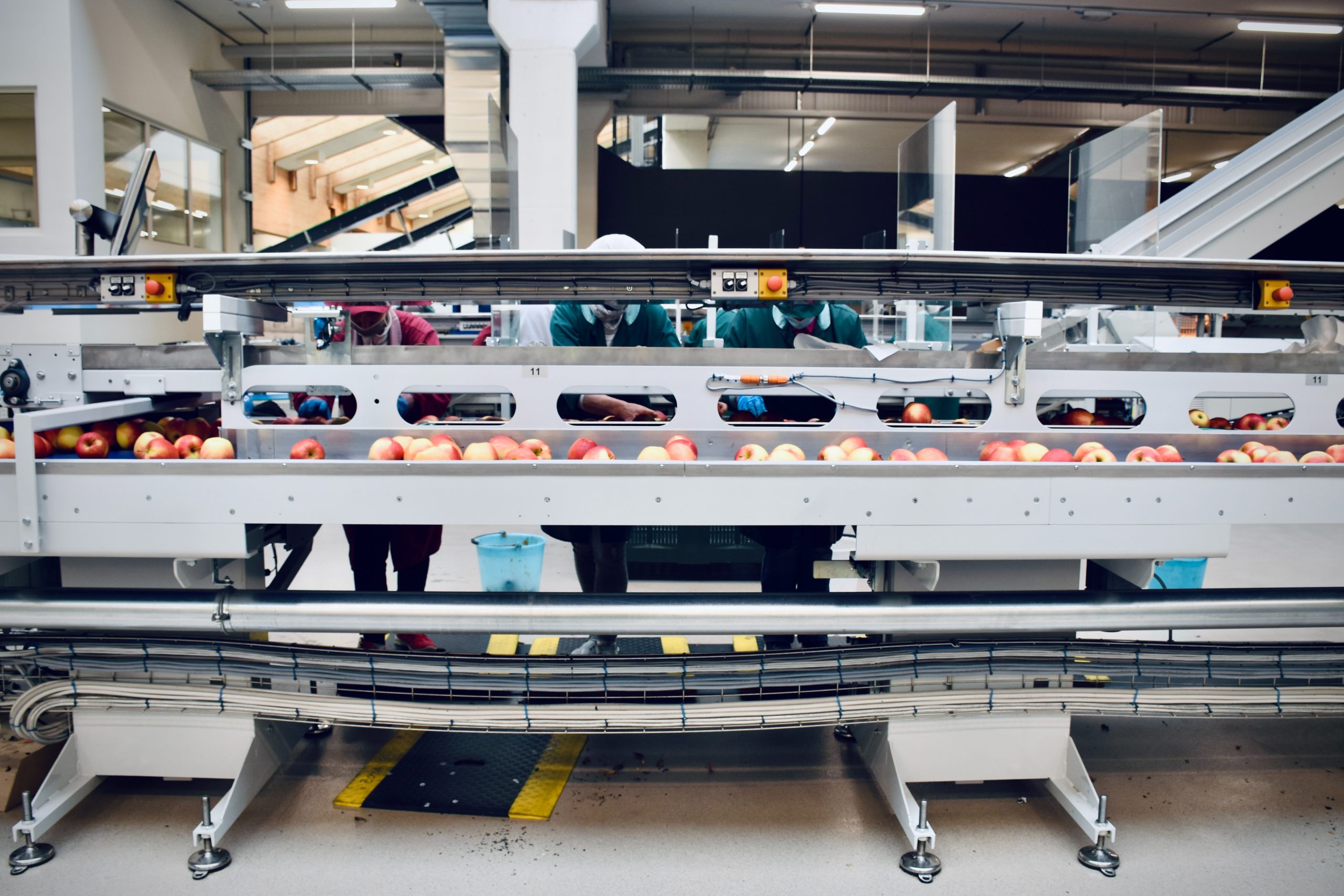Inspection Systems
Metal detection in food production
It is no secret that consumer protection is crucial in the food industry.
However, despite the best efforts, it isn’t uncommon for metal contaminants to end up in products during the food processing or production process.
Metal contaminants in food occur for a wide range of reasons, from their introduction at any stage of the food production process to their natural occurrence in food through soil and water.
Fortunately, metal detection in food production is a reliable strategy anyone in the industry can rely on to ensure food safety.
Industries we can help with
Food And Drink
Food processing plant design consultants can help you improve your plant’s energy efficiency, increase your rate of production, reduce lead times, and achieve 100 percent food safety compliance. However, they are also essential when you want to expand your operations.
Pet Food
Setting up a pet food production line is similar to a human food production line. However, as you might expect, there are some differences.
Pharmaceutical
Pharmaceutical engineering and plant design consultants help you expand pharmaceutical production lines in factories more efficiently and effectively. Their work includes regulatory compliance, validation, and implementing logistics services for maintenance and systems management. Most consultants assist firms from the initial concept stage onwards, guiding them through every step of the plan.
Petrochemical
Using an outside consultant for your petrochemical engineering projects can help you to maintain safety, efficiency and productivity like never before, all while minimising your spend and controlling your budget for your petrochemical plant construction.

What Is Metal Detection In Food Production?
Lead, nickel, arsenic, cadmium, copper, and selenium are common types of metals found in food, contaminating the entire food chain and harming public health. These metals can be introduced at any stage of the food production process.
However, you can use metal detectors to ensure the safety and integrity of various packaged, unpackaged, and bulk goods. Metal detection systems for food detect metallic contaminants. This happens during processing and packaging to ensure that no metals end up in the food we eat.

Why Is Metal Detection In Food Production Important?
Food industry metal detectors are crucial in improving safety standards before food consumption. They are, in fact, one of the benefits of technology in food.
- Companies use metal detection systems primarily for consumer protection. Consumers may be injured by metal particles present in food products, affecting their overall health.
- Food companies also use these inspection systems to protect their brand’s image. A company that sells contaminated food products is at risk of expensive recalls and hefty compensation claims. These recalls and compensations can lead to loss of consumer trust and a negative brand image, causing longer and more significant reputational damage. Luckily, a food metal detector can help you identify non-ferrous and ferrous metals like stainless steel and aluminium in time, preventing them from destroying your brand’s reputation.
- Metal detection also protects machinery from failure. This way, food companies can avoid production downtimes, costly repairs, and revenue decreases.

Types Of Metals And Machines
A great detection system can detect metallic particles from three main metal groups:
- Ferrous
- Non-Ferrous
- Stainless Steel
Furthermore, various machines are used to detect metals in food products like fruit, vegetables, fish, dairy, meat, and baked goods. These include:
- X-ray inspection systems: You can rely on a food X-ray inspection system for sharper detection capabilities when seeking to identify other contaminants like calcified bone, stone, and glass in addition to metal.
- Checkweigher combination systems: These systems are ideal if you supply various products to big supermarkets.
- Pipeline for pumped products: Pipelines are ideal for dairy, soup, sauce, and beverage inspection.
- Conveyor-based systems: These systems are used to inspect cereals, meats, bread, yoghurt, fruits, and vegetables.
- Gravity free-fall style metal detectors: It is best to invest in this system if you process grains, granules, and powders.

How Metal Detectors Work In the Food Industry
A food inspection metal detector works with various detection methods. However, they typically use the transmitter-receiver method in the food industry. These detectors have a transmitter coil that generates a constant electromagnetic field alongside two receiver coils.
Any metal particle that passes through the detector will interfere with this field, causing the receiver coils to detect the signal. The metal detector’s electronic unit will analyse this signal to determine whether it is metal contamination. Then, the detector will isolate the product from the production line if it is contaminated.
Frequently Asked Questions
We have developed metal inspection processes and systems for many food manufacturers in the UK and beyond. Also, we have extensive experience assisting a wide range of industries with food metal detection, ranging from dairy to red meat.
Metal detectors for food production engineering have advanced significantly over time so it is unlikely that they would mistakenly detect food. However, if a food product contains iron, salt, or water, and so is conductive it can lead to it falsely detecting metal in a food. This is known as product effect, but it is not very common, and several types of metal detectors have settings that cancel it out to avoid food being incorrectly detected.
Metal detectors are essential pieces of equipment in food engineering that protect both companies and customers from metal contamination in food products. If a piece of metal is found and consumed it can present a serious choking hazard and other health issues. Not only that but the reputation of the manufacturer will be negatively affected, and they might even have to pay out compensation or a fine for breaching health and safety standards.
Multiscan technology is a key part of modern metal detection in food engineering services. Up to five adjustable frequencies can be scanned using this technology which significantly improves the likelihood of accurate detection. Multispectrum x-ray systems in metal detectors use a computer to pass a beam through a product which then bounces back and forms an image on the computer screen. A control system will then determine whether the product should be accepted or rejected based on the image.
A GMP (good manufacturing practice) inspection is typically carried out via an on-site visit by a specifically trained inspector. The purpose of the inspection is to ensure manufacturers are adhering to the minimum standards for their production processes. They can occur across different industries but are most common in pharmaceuticals. As experienced pharmaceutical engineering consultants, our team can help you continuously meet GMP standards and pass all inspections.
 Mechanical and Electrical Services
Mechanical and Electrical Services  Lift and Shifts Works
Lift and Shifts Works  Construction
Construction